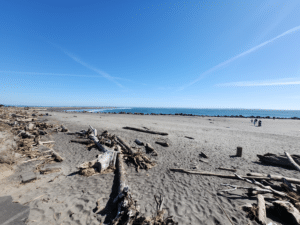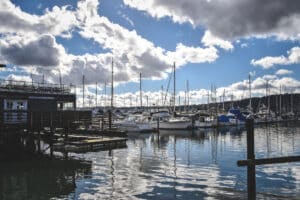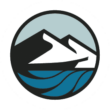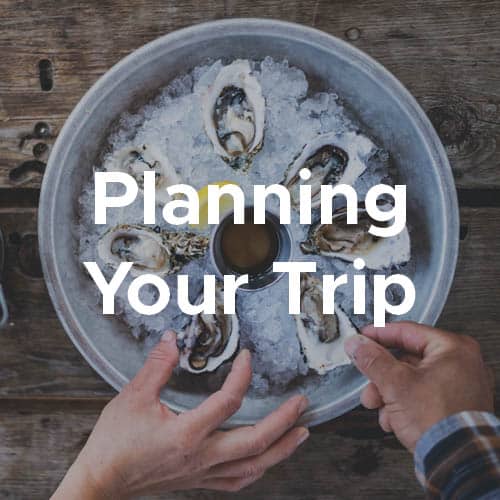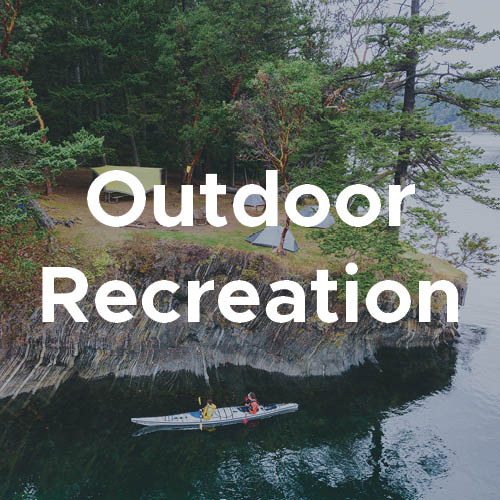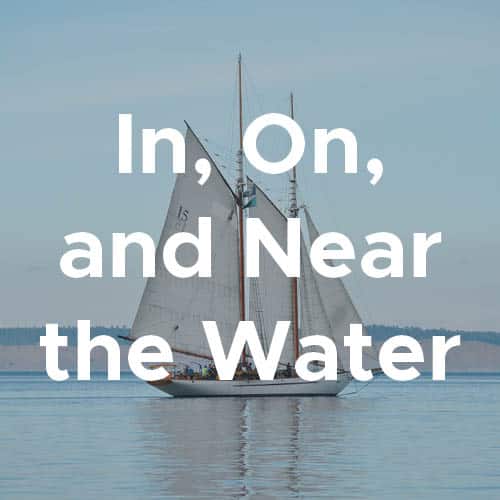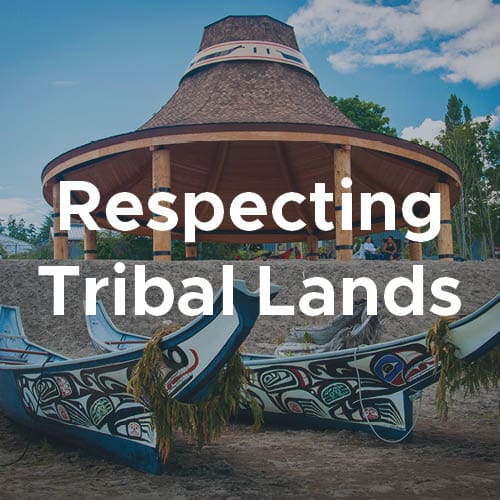Washington’s shorelines are bursting with some of the most breathtaking and significant places in the United States. From the wild and rugged coastline of the Olympic Peninsula to the scenic beauty of the islands, our shores are a treasure trove of natural wonders, cultural heritage, historic sites, and important Tribal resources. Being a responsible and respectful visitor will help ensure these magnificent places and communities are around for your next visit—and for future generations. Follow these tips to help protect and preserve Washington’s irreplaceable natural, cultural, and historic maritime resources during your travels.
Whether you’re a landlubber or an old sea dog, Maritime Washington itineraries provide responsible and fun guidance for a variety of destinations within the heritage area, for any group or timeline.
Planning Your Trip
A little preparation goes a long way! Not only will a solid plan help you enjoy your trip, it can also help to minimize the negative impacts of over-tourism and costly rescues.
- Know the weather and pack accordingly. Be prepared for Washington’s unpredictable weather with extra layers to stay warm and dry.
- Check for road closures. Ensure your route is open by looking through WSDOT road closures.
- Confirm ferry schedules and watch for delays. Check ferry schedules and WSDOT ferry travel bulletins when planning your trip. Even during winter, popular routes can see lengthy wait times, so be sure to arrive early. For travel between Anacortes and the San Juan Islands, reservations are required for vehicles.
- Visit websites and social media for destination updates. Stay informed about closures and special events. A few popular sources for information include State Parks alerts and Olympic National Park conditions.
- Make a Plan B. Always have an alternative plan in case your primary destination is unavailable or lack of parking requires you to pivot.
- Get the right passes and/or permits. Certain locations within the heritage area require passes or permits for entry, camping, or parking.
- You’ll need a Discover Pass for State Parks, which you can purchase online or on-site or check out for free from your local library.
- For federal lands, such as National Parks and National Forests, you’ll need a Federal Recreation Pass, such as an Annual Northwest Forest Pass, National Forest Recreation Day Pass, Interagency Pass, Annual Pass (a.k.a. America the Beautiful Pass), Senior Pass, Access Pass, or Military Pass.
- Olympic National Park wilderness requires an additional permit for overnight camping.
- Certain sites on Tribal lands may also require permits, so be sure to check the Tribe’s website or call for more information. For example, the popular Cape Flattery and Shi Shi Beach trails require a Makah Recreation Permit.
- Check out this overview of permits, passes, and reservations in Washington for more information.






Outdoor Recreation
Whether you’re hiking, biking, running, or camping, outdoor recreation is one of the best ways to experience the wonder of Washington’s shorelines. It’s important, however, to understand and minimize the potential negative impacts of your adventure.
- Know before you go. Trails, roads, or certain areas may be unavailable due to washouts, trail maintenance, or other unexpected circumstances. The Washington TrailsAssociation is a great place to search for information and review recent trail reports.
- Bring the 10 essentials. Always pack a navigation device, sun protection, insulation, illumination, first-aid supplies, fire supplies, repair kit, food, water, and an emergency shelter. Learn more about the 10 essentials with this handy overview from the National Park Service.
- Pack out all trash and Leave No Trace. Follow the seven Leave No Trace principles to minimize your impact on sensitive ecosystems and cultural resources.
- Plan ahead and be prepared.
- Stay on marked trails, and travel and camp on durable surfaces whenever possible.
- Dispose of waste properly and pack out all trash.
- Leave areas as you found them.
- Minimize campfire impacts.
- Respect wildlife and keep your distance.
- Be considerate of others.
- Leave cultural and historic artifacts untouched. If you find old objects while on public lands, leave them in place and notify staff as soon as possible. They may be important cultural artifacts. Never deface or remove artifacts from cultural or historic sites. For more information on what to do if you find a historic, cultural, or natural history specimen, check out this helpful post from our friends at State Parks.
- Respect wildlife. Keep your distance from wildlife while on the trail. If an animal reacts to your presence, you are too close.
- Stay on designated trails. Going off-trail can disturb sensitive plants and animals and pose safety risks.
- Practice good trail etiquette. While on the trail, clean up after your dog, don’t play music from speakers, and remember that uphill travelers have right-of-way.
- Build an inclusive outdoors. Be an active part of making the outdoors safe and welcome for all identities and abilities.
- Help spread the word about responsible recreation by amplifying #RecreateResponsibly messaging. Find resources to amplify messaging about responsible recreation from the Recreate Responsibly Coalition.
In, On, and Near the Water
No visit to the Maritime Washington National Heritage Area would be complete without water! Boaters, swimmers, tidepoolers, and beach-goers alike can help keep our waters clean, safe, and healthy for all.
- Know before you go. Check the weather forecast and water conditions. And remember: just because it’s hot outside doesn’t mean the water is warm—cold water can be dangerous.
- Bring a life jacket. Pack a personal flotation device any time you’re on or near the water, including boats, beaches, docks, and more.
- Learn how to respond. If someone in the water is in trouble, call 911 and get help, but don’t go in the water yourself. To assist others: Reach, Throw, Don’t Go. If you are in trouble: Flip, Float, Relax.
- Keep your distance from marine mammals. Stay at least 50 yards away from seals and sea lions in the water and on shore—it’s the law. Do not feed marine mammals, and make sure to keep your pets away as well. To report sick or stranded animals, call the Marine Mammal Stranding Network at 1-800-562-8832 or email [email protected].
- Be Whale Wise. Boaters are required to stay at least 1,000 yards (10 football fields) from Southern Resident killer whales and at least 100 yards away from other whales and dolphins. It can be difficult to measure distance and determine a whale’s species. When in doubt, safely turn off your engine when you see a killer whale. Learn more about boating regulations and guidelines regarding marine mammals from Be Whale Wise.
- Follow fishing and shellfishing guidelines. If you plan to fish or harvest shellfish, familiarize yourself with the local regulations, required permits, and catch limits. Avoid overfishing to maintain the balance of aquatic life. The Washington Department of Fish and Wildlife maintains helpful information on fishing regulations and shellfishing regulations on their website.
- Leave shells on the beach. When beachcombing, leave shells, rocks, and other natural items where you find them, as they are essential components of the ecosystem. When exploring tidepools, be gentle, don’t turn over large rocks, don’t take anything with you, and step lightly.

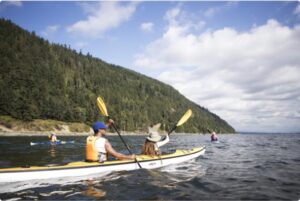

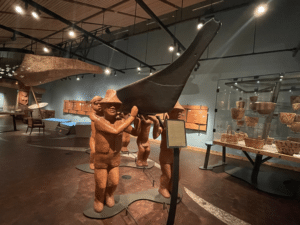

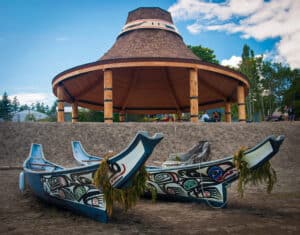
Respecting Tribal Lands
Since time immemorial and into present day, Tribes have lived on, cared for, and governed the lands and waters of Washington’s shores. Take time to learn about the history and culture of the first people of this special place and treat the lands and people you visit with respect.
- Learn more about Tribal maritime heritage. Learn about the history of Tribal lands and visit Tribal museums during your travels.
- Support Tribal-owned businesses. Contribute positively to the community by supporting Tribal-owned businesses and artisans. (Check out our profile on Moby Duck Chowder in Port Angeles—owned and operated by Jamestown S’Klallam Tribal members and geoduck divers—for inspiration.)
- Check access and follow local laws. Before visiting Tribal lands, check the Tribe’s website or call them directly to confirm the site or event is open to the public. Once on Tribal land, respect signage and follow local laws. Remember that Tribes are sovereign nations and may enact different rules and regulations.
- Engage and learn. If given the opportunity, listen to Tribal members’ stories and appreciate their perspectives on the significance of our coastal areas. Remember to be a gracious visitor and that social customs may differ. Always ask for consent before asking for favors.
- Avoid vandalism. Never deface or remove artifacts, carvings, or any other objects from cultural or historic sites.
Make Tourism More Sustainable
Climate change, rising sea levels, and overuse are challenging Washington’s natural environment and the ways of life that rely on them. Many communities are also struggling with the impacts of overtourism. Help make your visit a positive one—for yourself, the environment, and your host community—with a few simple tips.
- Visit during the off-season or off-hours. Travel throughout Washington is busiest from Memorial Day through Labor Day, peaking in July and August. Avoid overcrowding and enjoy a more peaceful experience by visiting in spring, fall, or winter. If you do visit in the summer, consider visiting on a weekday and/or early in the morning or in the evening—and always have a backup plan in case parking lots are full.
- Drive responsibly. Congestion and illegal parking can damage local communities as well as sensitive ecosystems. Don’t hold up traffic, and do not create your own parking spaces. If a parking lot is full, that means it’s time to move to Plan B.
- Consider leaving your car at home. Bring a bike or check out local transit options to help reduce the congestion and carbon emissions caused by private vehicles. Many maritime communities offer transit service to popular visitor destinations, such as San Juan Transit and Friday Harbor Jolly Trolley in the San Juans or Island Transit on Whidbey Island.
- Bring your own reusable supplies. Packing a water bottle, coffee mug, or reusable shopping bag can go a long way towards reducing waste.
- Volunteer and give back. Participate in beach clean-ups and other community events to contribute to the continued ecological health of our shores. Washington State Parks, Washington CoastSavers, and Puget Soundkeeper all host regular beach clean-ups. Not a fan of picking up trash? Consider donating to an environmental organization in the place you’re visiting.
- Support local businesses. Contribute to the local economy by eating and shopping at locally owned businesses. Explore websites for local Main Street Communities to find great recommendations for eateries, artisans, shops, and markets. Or search Eat Local First to find restaurants, bakeries, farms, and more.
- Be considerate to others. Many businesses in Washington are struggling with understaffing, especially those in heavily touristed areas. Pack your patience, and be kind to those you meet.

